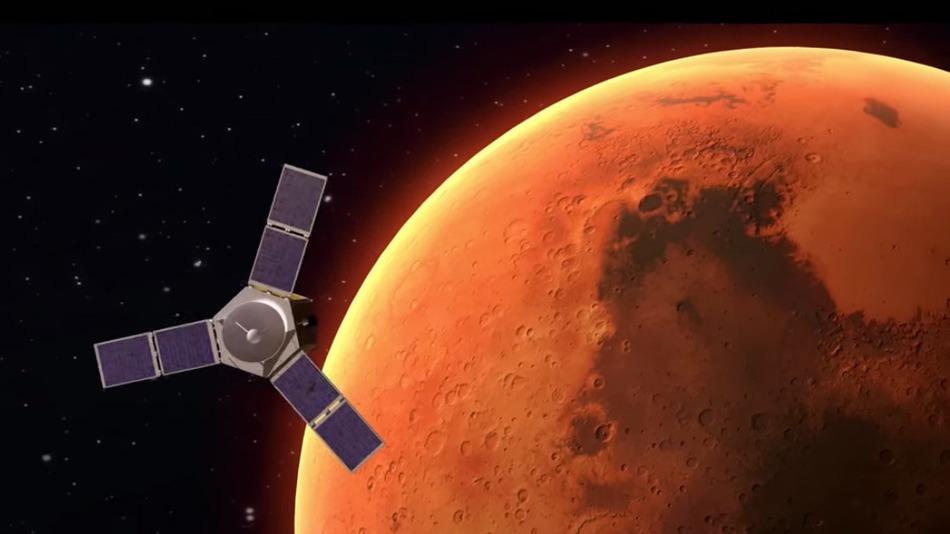Special Desk
The UAE is looking towards Mars. First Arab space mission to Mars is preparing to lift off within weeks and fuelling is slated to begin next week.
The seven months travel having to do 493 million km (308 million miles) to reach Mars and begin its orbit, aims at sending back ground-breaking new data about its climate and atmosphere. The probe will remain orbiting Mars for an entire Martian year, 687 days, to gather sufficient data. A single orbit around Mars will take the probe 55 hours.
Programme director Sarah Al-Amiri has said the project should be a major incentive for young scientists to embark on a career in space engineering. Named Amal, meaning Hope, the unmanned craft is due to lift off from a remote Japanese island, Tanegashima, on 14 July.

Powered by a Japanese rocket, it will be carrying three types of sensors for measuring the complex make-up of Mars’s atmosphere. These include a high-resolution multiband camera for measuring the planet’s dust and ozone.
Second will be an infrared spectrometer for measuring both the upper and lower atmosphere and developed by Arizona State University, one of the project’s three US partner universities. The third sensor will be an ultraviolet spectrometer for measuring oxygen and hydrogen levels.
The first Arab astronaut to go into space was Saudi Arabia’s Prince Sultan Bin Salman Al-Saud, who flew on the US space shuttle in 1985. The spacecraft was built in the UAE and shipped to Japan, where all its engineers immediately had to go into quarantine due to the coronavirus pandemic, threatening to delay the launch.
Monica Grady, professor of planetary and space science at Britain’s Open University, believes this Mars mission marks a major change in an industry previously dominated by the major powers of the world.
“It’s a real step forwards for Mars exploration, because it shows that other nations – rather than the European Space Agency and Nasa can actually go there – well we hope it will get there. Mars has a very long history of mission failures,” she said.
The planet does have frozen water its polar ice caps, and Nasa has recently found some evidence that liquid water flows at sub-surface levels intermittently on present-day Mars – but the planet is extremely arid when compared to Earth.
 Jubilee Post News & Views
Jubilee Post News & Views





